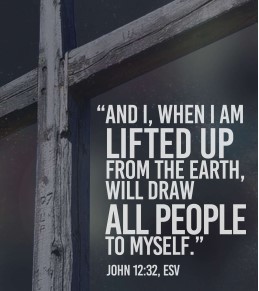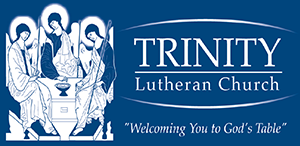
About thirteen years ago, author Wayne Jacobsen came to Trinity and spent a weekend with us leading some conversations about God’s love. It was a memorable weekend for many of us. I also know that many of you reading this were not part of these conversations. I haven’t seen Wayne since he was here. I’ve interacted with him a few times on Facebook and through email, but we really haven’t talked. Which is unfortunate because he is one of the wisest people I know.
One way to get some of Wayne’s wisdom is to read Wayne’s book, He Loves Me: How to Live in the Father’s Affection. I highly recommend it. The book has a lot of insight into exactly what the title says. (I’ll be happy to give you a copy if you want one.) Wayne is honest that what he’s talking about – a relationship with the Father – is not something that you get from reading a book or getting a deeper understanding of theology. A relationship with God is exactly that, a relationship, a connection between a Person and a person with give-and-take and communication.
We’re not talking about something from the Twilight Zone with audible voices in empty rooms or flashes of lightning across the sky spelling out words in cursive writing. But we’re also not talking about what we usually point to when we talk about a “relationship” with God. When asked about our relationship with God, we’re likely to respond with something like, “It’s good. I go to worship every week, read my Bible, and say my prayers before I go to sleep.” Does that sound like a relationship in which God is intimately known? Perhaps not. Perhaps we can go through all the “right” motions of Christianity and still not feel like God is close to us or that we know Him.
A relationship with God means conversations with Father that are true to real life – a sharing of joys and sorrows and struggles along with times of listening for a response. That response is rarely an overwhelming, clear message. “God’s voice is a conviction that builds over time” is how Wayne puts it. As we open ourselves to God’s direction, that direction can become clear. We get a sense of where God might be leading us, we check with other believers – we ask them how it sounds to them – and we compare the leading we are feeling with Scripture. Can we be wrong? Of course! Think how often we misinterpret other human beings, many times because of our own misconceptions. We can certainly misinterpret God. Still, that doesn’t mean that it’s not worth listening to Him. It is definitely worth it, and, over time, we get better and better at hearing what God is saying to us.
If we start from the point that God loves us, we can be more open to hearing God’s voice and trusting the direction that Father gives us. In the face of all the tragedy and suffering in the world and the pain and disappointment in our own lives, it can be difficult to believe that the all-powerful God of the universe loves us. That’s why Wayne focused on the Cross so much. When God opens our hearts to see what really happened on the Cross, we can trust God’s love for us. This really isn’t something that is just an intellectual agreement with a certain theological explanation of the atonement. It is beyond that. When God helps us see what was accomplished on Calvary, it really does move us into a new place in our relationship with Him. It enables us to live more and more as God’s beloved children – for that is who we are (cf. Romans 8:16). Like the disciples on the Road to Emmaus who needed Jesus to open the Scriptures to them before they could really understand who he was, we need Jesus to help us see what he did for us on the Cross. And like those disciples, an intellectual explanation isn’t enough; we need to experience a transformation. As Wayne said, “Ask God to reveal to you what happened on the Cross.” Pray and listen. It can make a profound difference.
We can get lost in the business and busyness of our lives, even of our life together as church. Sometimes we need a reminder that it always was, always is and always will be about Jesus, His love for us, our love for Him, and our love for one another. When we live loved, we truly live.
